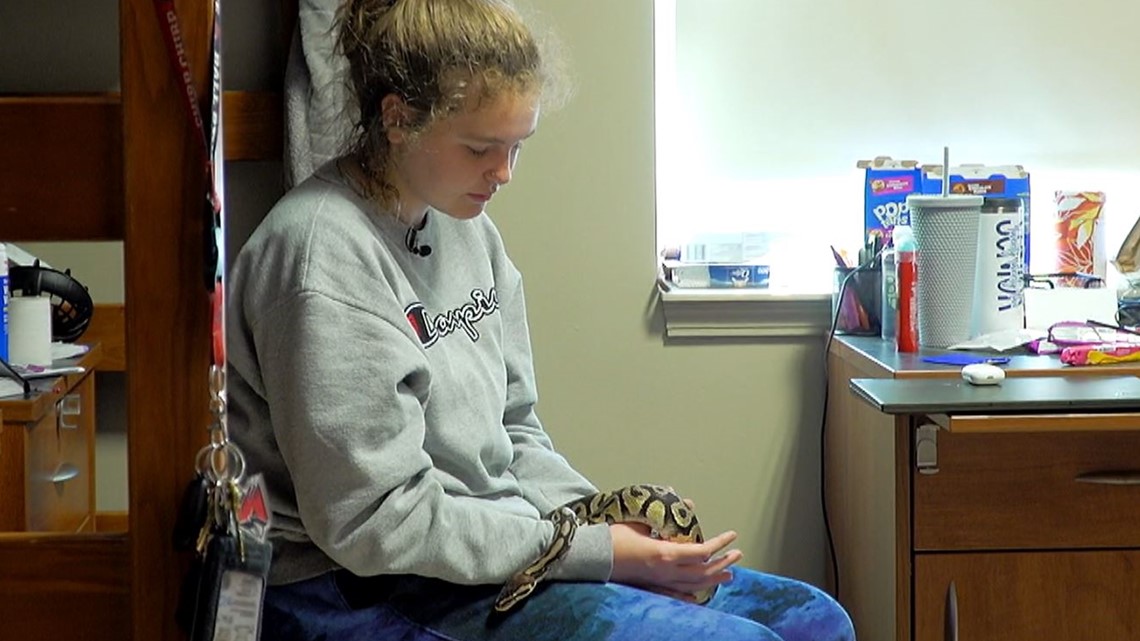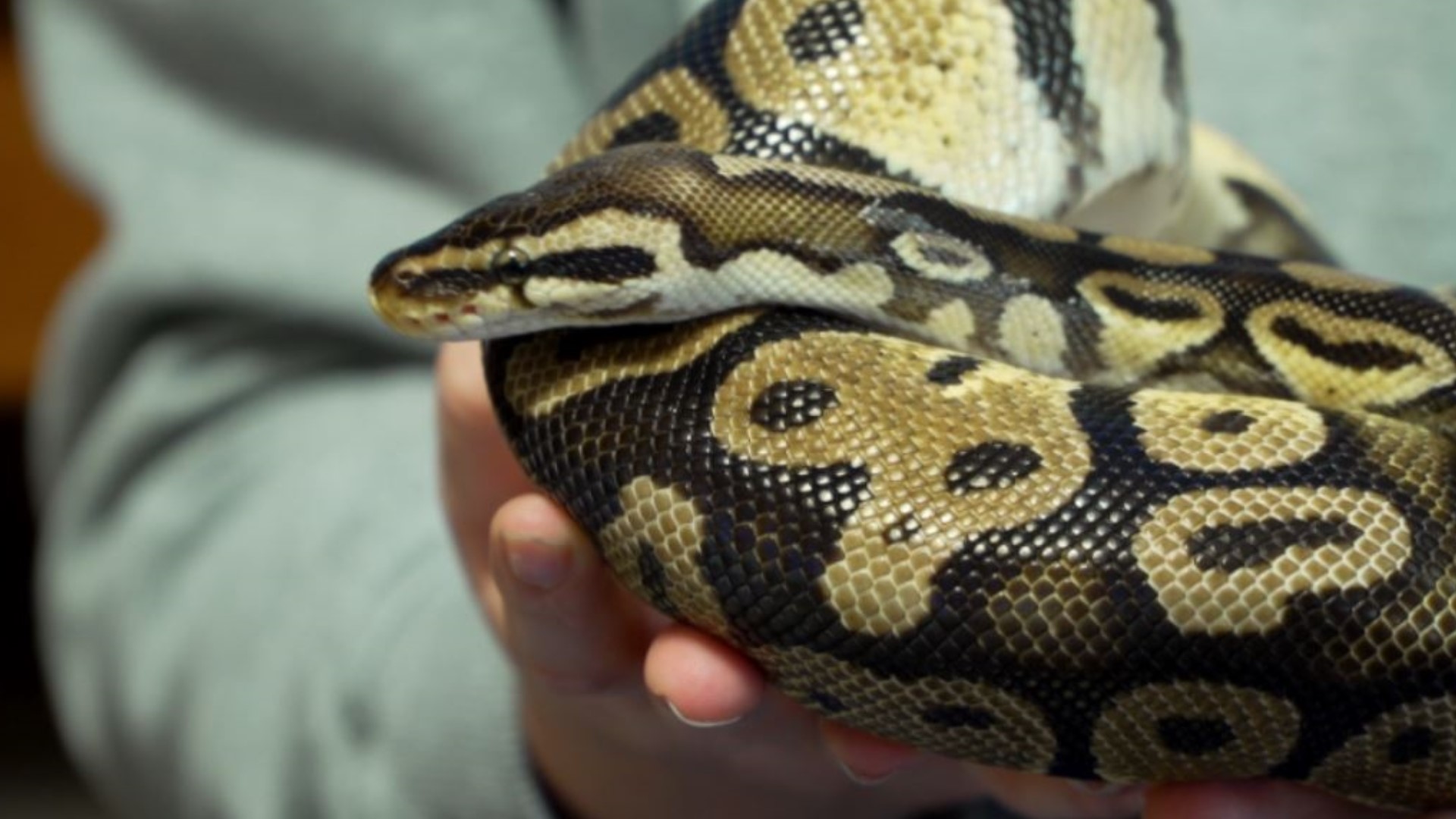RICHMOND, Ind. — Hundreds of emotional support animals are now living on Indiana campuses.
13 Investigates learned the number of these animals in college dorms doubled, tripled even grew fivefold at some colleges and universities over several school years.
On Earlham College's campus, Jake is one of 35 emotional support animals. Sophomore Eloise Richardson’s dog is furry, cute and playful, but he's not a pet. Instead, a working dog, Jake is part of Eloise's mental health treatment plan.
"I have anxiety and it definitely calms me down a lot more to be around animals,” Eloise said.
“When you pet a dog or a cat, it releases oxytocin and also like decreases the stress hormone cortisol,” she said.


Eloise doesn’t remember what prompted her diagnosis, but her anxiety is a disability. As an emotional support animal, Jake is protected as a mental health accommodation by the Fair Housing Act. ESAs are considered assistance animals and they are defined as an animal that “works, provides assistance, or performs tasks for the benefit of a person with a disability, or that provides emotional support that alleviates one or more identified effects of a person’s disability. An assistance animal is not a pet.”
Because of those protections, schools like Earlham now have policies to accommodate ESAs.
These assistance animals are federally protected, but they are not required to be trained or allowed in public places. For the most part, they must stay in their owner’s dorm room or outside. Most colleges also do not allow them in public spaces like a classroom or the library.
ESAs are different from the more well-known service animals – which are also federally protected – but by the Americans with Disabilities Act. An updated version of the law excludes miniature horses and only refers to dogs as service animals. Those dogs must be individually trained to do work or perform tasks for a person with a disability. They’re also allowed to accompany their owner in all public spaces.
While service animals are only dogs. Emotional support animals can be almost any animal. Earlham College draws the line at rodents. Purdue Fort Wayne reports allowing most animals allowed by city ordinance.
“We don't ban any animals that haven’t been banned by the city,” said Ryan McCombs, director of the Disability Access Center at Purdue Fort Wayne.
Some animals he says that would likely not be allowed on campus would be farm animals, monkeys, certain birds and “extreme exotic animals.”
Schools report most of the animals are dogs and cats. However, we also know some rabbits, hamsters and guinea pigs are on Indiana campuses. Indiana State University reports one student has a chinchilla.
On Ball State University we even met a snake named Twilight. It may seem odd to some, but MacKenzie Shadrick says it’s not for her.


“I grew up around snakes, so I've always been used to them comfort it's like a childhood thing, I suppose,” MacKenzie said.
The ball python is part of a treatment plan to help her cope with depression, anxiety, and PTSD.
"I get her out, and she just like kind of chills around my neck,” she said. “It's kind of like a little hug."
On 13News at 11, you’ll hear more about how some students ended up needing an ESA. We’ll also go through the process schools have in place to try and make sure only working animals end up in college dorms.

